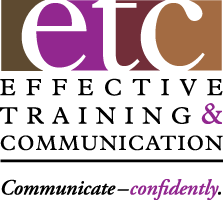As business leaders, we spend a lot of time each day writing and talking. We should all add the title ‘Workplace Communicator’ to our business cards. And we often write or say more than we need. Those extra – and unnecessary – words can even get in the way of our focused and clear messages.
What follows is a quick review of techniques to KISS Wordy Goodbye – for making every word count and counting every word. And, to help you ‘Keep It Short & Simple!’
